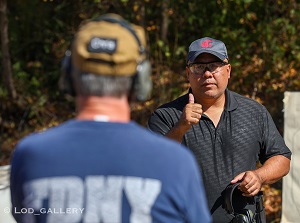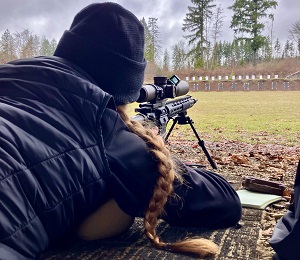 We have starting point classes for Handgun, Rifle, and Shotgun which can be found on our Current Class Offerings page marked Staring Point.
We have starting point classes for Handgun, Rifle, and Shotgun which can be found on our Current Class Offerings page marked Staring Point.
For more info and gear related questions, please see our Frequently Asked Questions and Advice to New Students articles.
FAS pride's itself on being a full firearms training academy with an extensive curriculum for shooters of all levels and interests. Our core values are centered around teaching defensive shooting and thinking with a gun in your hand which is why our curriculum starts with a comprehensive legal lecture on the judicious use of deadly force.
Our classes are divided into different levels. We recommend new shooters, or those who want to start from the beginning, to start in our Level 1 classes. For more experienced shooters, starting at our Level 2 classes is an option and these higher level classes require all students to have a valid concealed pistol license or LE/MIL credentials to participate.
Handgun:
For newer shooters, or those who have not trained in a while, we recommend starting at Level 1: Intro to Handguns followed by Handgun Fundamentals and Familiarization or Concealed Carry 101 depending on the student's training goals. Concealed Carry 102 allows the student more practice from the holster before moving onto other FAS classes. Our Intro to Handguns class is the mandatory pre-requisite for these other Level 1 classes and is frequently paired up with them on the same weekend to give the student the opportunity to turn Intro to Handguns into a 2-day class with either an extra day of live fire from the bench in Handgun Fundamentals or a day of live fire from the holster in CC101. Please check the individual class pages for more information and available dates.
For more experienced shooters, Level 2: Defensive Handgun or Weeklong Handgun would be a good starting point as these dive right into holster work, concealment, moving and shooting, shooting moving targets, low light, and force on paper scenario training. Completion of our Defensive Handgun class opens the student up to being able to take our Intermediate Concealed Carry Classes, Handgun Seminars, and is a requirement for our Level 3 Handgun, Rifle, and Shotgun classes.
Rifle/Carbine:
 Our two Level 1 rifle/carbine classes are designed to equally start a newer shooter off with the basics and to allow an experienced shooter to dial in their gear or to bring out a new gun they may be less familiar with to get some practice. The Carbine Fundamentals class is designed around shooting the AR15, or similar sized carbine/PCC, at closer distances and is heavily manipulation based while our Rifle Marksmanship Fundamentals class focuses on position shooting and accuracy out to 100 yards.
Our two Level 1 rifle/carbine classes are designed to equally start a newer shooter off with the basics and to allow an experienced shooter to dial in their gear or to bring out a new gun they may be less familiar with to get some practice. The Carbine Fundamentals class is designed around shooting the AR15, or similar sized carbine/PCC, at closer distances and is heavily manipulation based while our Rifle Marksmanship Fundamentals class focuses on position shooting and accuracy out to 100 yards.
Starting in a Level 2 rifle/carbine class will assume you already have an understanding of the basic concepts taught in our Level 1 classes although we will still zero the first day of each class as we understand students may not have a place to zero or may be using new equipment. Our FAS 2-Day Carbine is our main carbine class which covers everything from zeroing to low light, moving targets, and rapid fire. Our Intermediate Scoped Rifle class gives students the opportunity to stretch their carbines and rifles out to further distances on our long distance rifle range and is a lighter version of our FAS 3-Day Precision Rifle class.
Our Level 3+ carbine/rifle classes also require Level 2: Defensive Handgun as a pre-requisite as we will be doing transitions from long gun to pistol.
Shotgun:
Our Level 1: Intro to Shotgun class is designed for the new shooter, or one trying out a new shotgun, to get good reps and to learn the manipulations of their gun. We frequently pair this class up on the same weekend with our Level 2: Defensive Shotgun class which covers legal use of force, patterning, and other considerations of using a shotgun
Our Level 3+ Shotgun classes also require Level 2: Defensive Handgun as a pre-requisite as we will be doing transitions from long gun to pistol.
Prerequisites apply for Guest Instructors which can be found on their individual registration pages or on the instructor's websites.
If you have taken previous training from another school, please contact us if you have a question about where to start.
